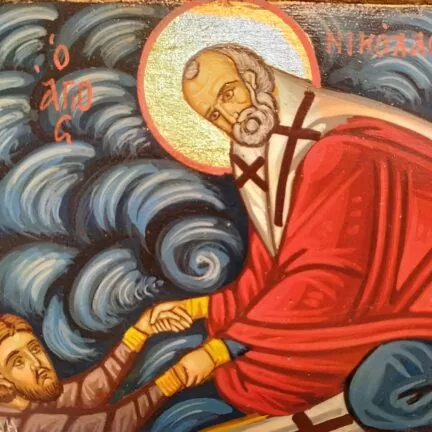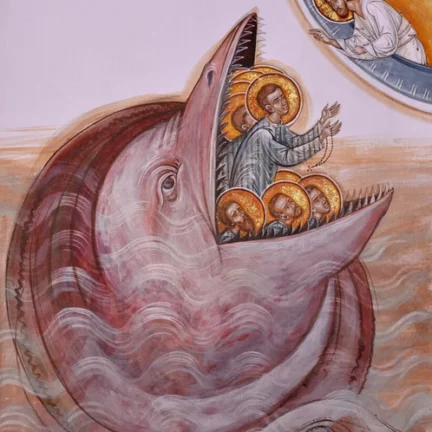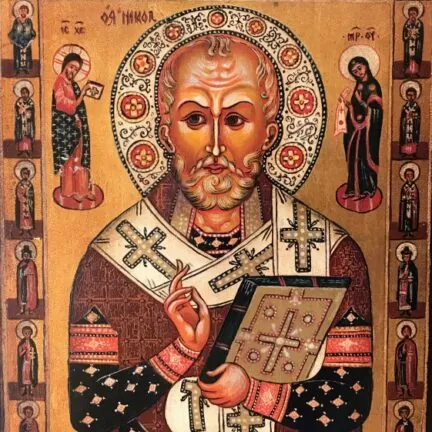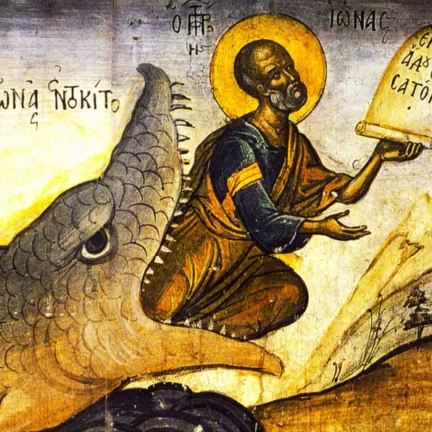Religiosity – Unio Mystica – The Mystical Wedding – Mystics in the West & Zen Masters in the East – The Holy Grail, the living word that heals the soul!
Religiosity - Mysticism & Zen
While religion (form) remains on an external descriptive level of a symbol system with cosmic perception, religiosity (content) characterizes an inner experience of a divine or absolute reality as well as the efforts to achieve such an experience. The Unio Mystica (mystical marriage) in mysticism or enlightenment in Zen. In the East they are called Zen masters and in the West they are mystics. The saints and sages who seek the living word that brings the soul to life.
Mysticism needs symbolic language (religion), because in the beginning was the Word, and the living Word was with God, and the Logos was God. If you have understood that there is no way to say it, then you should know how to say it, because in the beginning was the Word. (Zen Master Pohwa Sunim)
The dog chases the ball, the tiger bites the thrower! The unmoved mover: God has never moved at all and yet the iron wheel melts!
Religiosity - Mysticism & Zen
Mysticism is a special form of religiosity, a special devotion and contemplation. Characteristics of mystical experience are the striving for union with the supernatural, the divine, the turning away from the world of the sensual and the purely intellectual, and the meditative contemplation of the soul in itself.
Zen and mysticism are about religious experience and the living core of every religion, in which only practice - the religious experience, the realization - is important. And in the West, religious experience has the language of Christianity (the mother tongue of our soul) and in the East the language of Buddhism. It is not about proof of God but about experiences of God. Meditation and contemplation do not serve to develop the ego and nurture the personality, but rather the revelation of the divine or absolute self. In it, knowledge is not sought and achieved, but certainty and wisdom.
The Paradox - Breakthrough from the ego to the SELF
Many reports of mystical experience emphasize that no term and no statement even remotely fits. The experience can at best be described, also depending on socio-cultural conditions. With the simultaneous inability to name and the desire not to just remain silent about the experience, mysticism often uses metaphorical and symbolic stylistic devices. Because only the paradox can even come close to grasping the fullness of life, but the unambiguousness and the lack of contradiction are one-sided and therefore unsuitable for expressing the incomprehensible.
The LOGOS, the unmoved mover, the living word, the sword of wisdom, which brings to life and kills at the same time with one blow. The word that heals my soul. Zen meditation with paradoxical questions (Koan, Hwadu) aims at a breakthrough from a consciousness limited by the ego form into the non-ego-like self. An experience of religious transformation and a mystical experience, with its preliminary stages consisting of "letting go" and "emptying images and ideas".
Thomas Aquinas
Legends say that after a mystical experience, Thomas Aquinas wanted to burn his books because he realized that all concepts attributable to God are more wrong than right. In fact, the Thomasian doctrine of analogy reflects the describability and indescribability of God.
Mystics in the West - Monastic-Mystical Striving
In the Middle Ages, the personal mystical experience of God was primarily found in monasteries. The monasteries were thus the backbone of religion and the basis of a healthy society. The highest goal of the monastic-mystical striving remains this experience of God in the unio mystica, the mystical union with God, in the broader sense the search for an "awareness of the immediate presence of God".
Unio Mystica - Becoming one with God
The mystical marriage (unio mystica) is the immediate experience of God. But how can one communicate something that is not fixed in conceptual thinking? It is only possible through the paradox. The living and the lived, the loving and the beloved disappear in the mystical being of absoluteness. One becomes one.
Zen Masters in the East - Enlightenment
For the Zen masters in the East, enlightenment is the unio mystica of the mystics in the West. Enlightenment, such as "recognition of one's own self" or "recognition of one's own nature", is a spiritual experience in the Zen tradition. It is an initial awakening experience in which the awakened person recognizes his own true nature, his true self, which enables him to work on understanding this knowledge in his daily life. It is also often translated as "self-essence-view", which means that one recognizes the true nature of one's being and thereby of all beings. The task for the practitioner is then to transfer this state to his daily life, that is, to live according to this deeply felt knowledge.
The personal work towards the goal of this realization is usually a lengthy process of meditation and introspection under the guidance of a Zen master or another teacher. The underlying method is called: Who am I?, because it is precisely this question that leads to the search for one's own true nature. The first step on the path to the mystical marriage is the idea that no thinking self exists, but that it is precisely the process of thinking that creates the illusion of a self.




